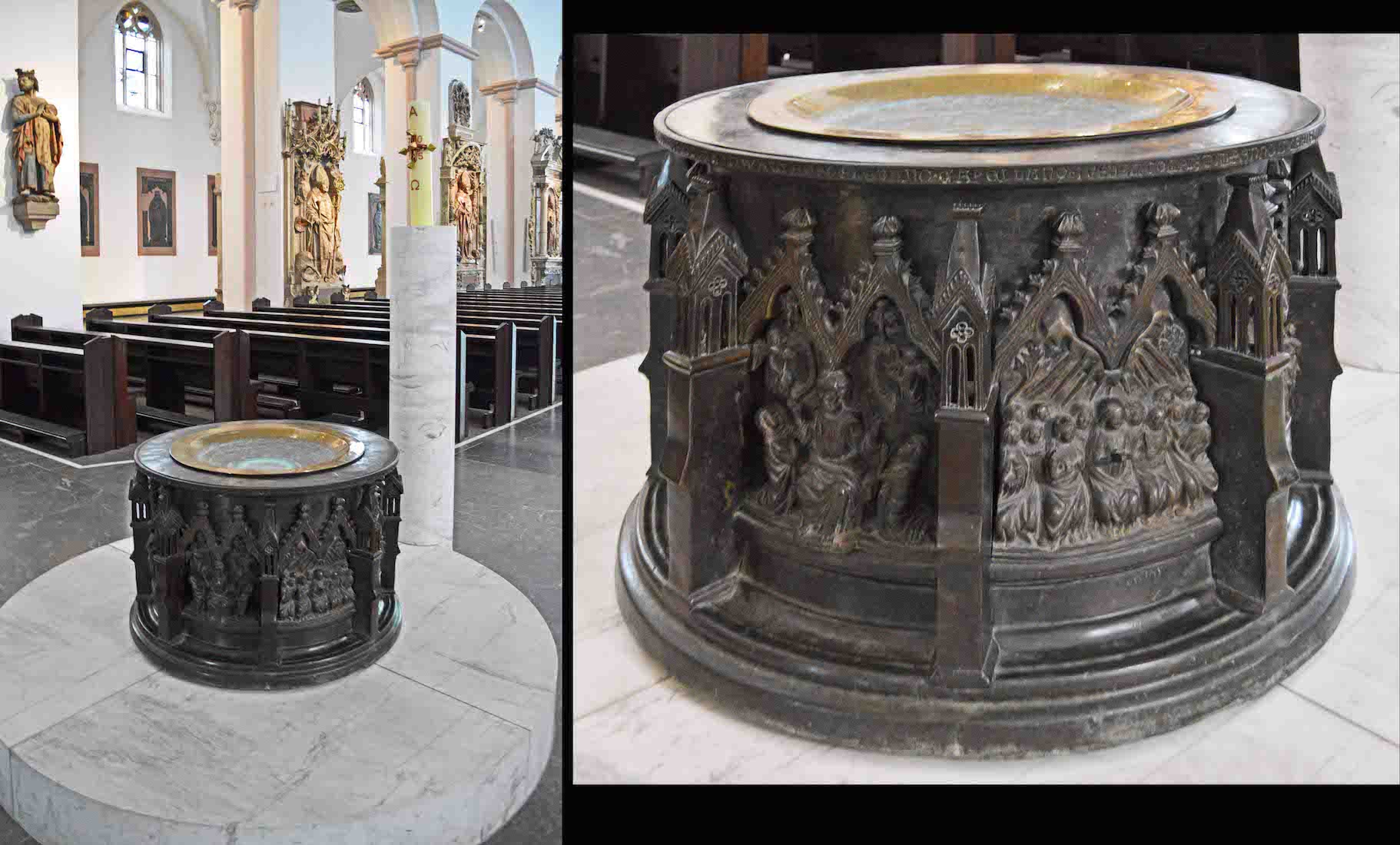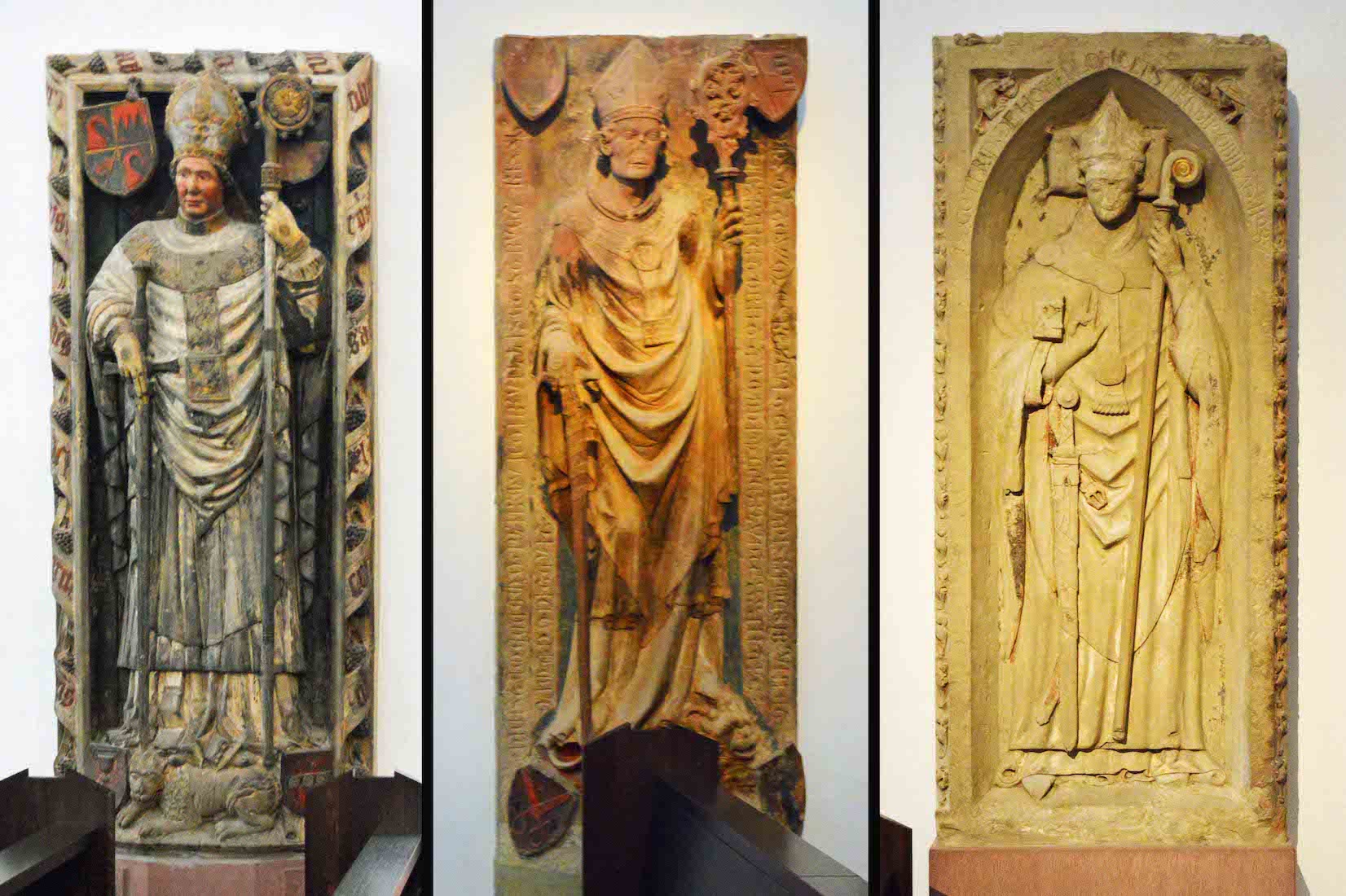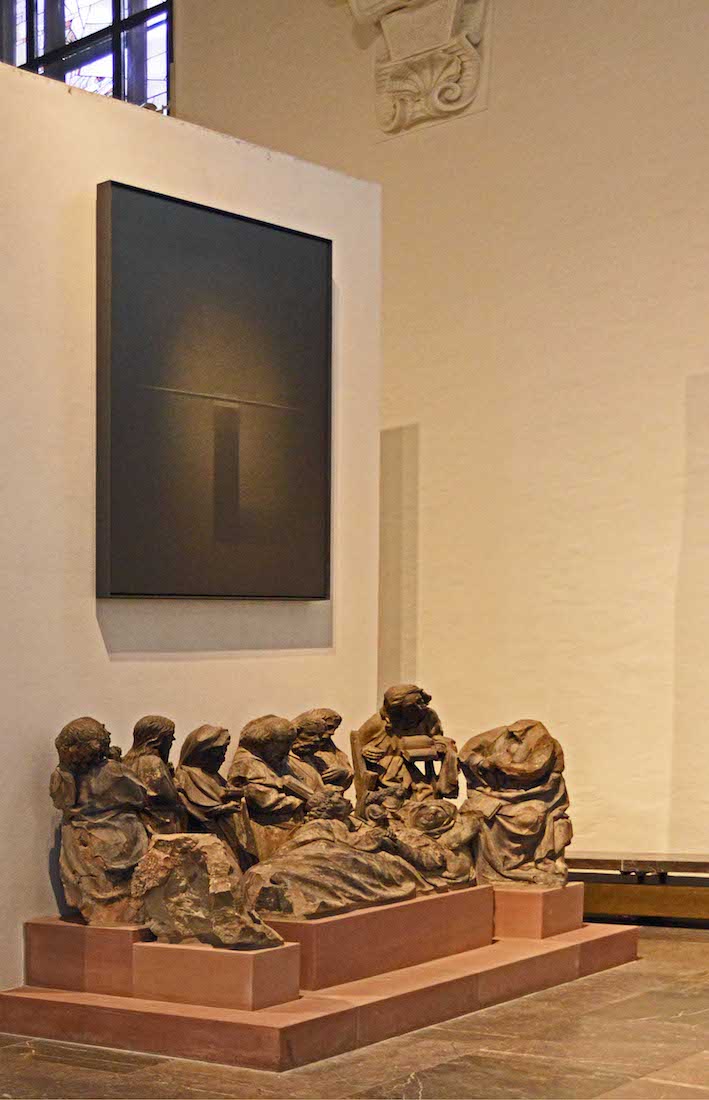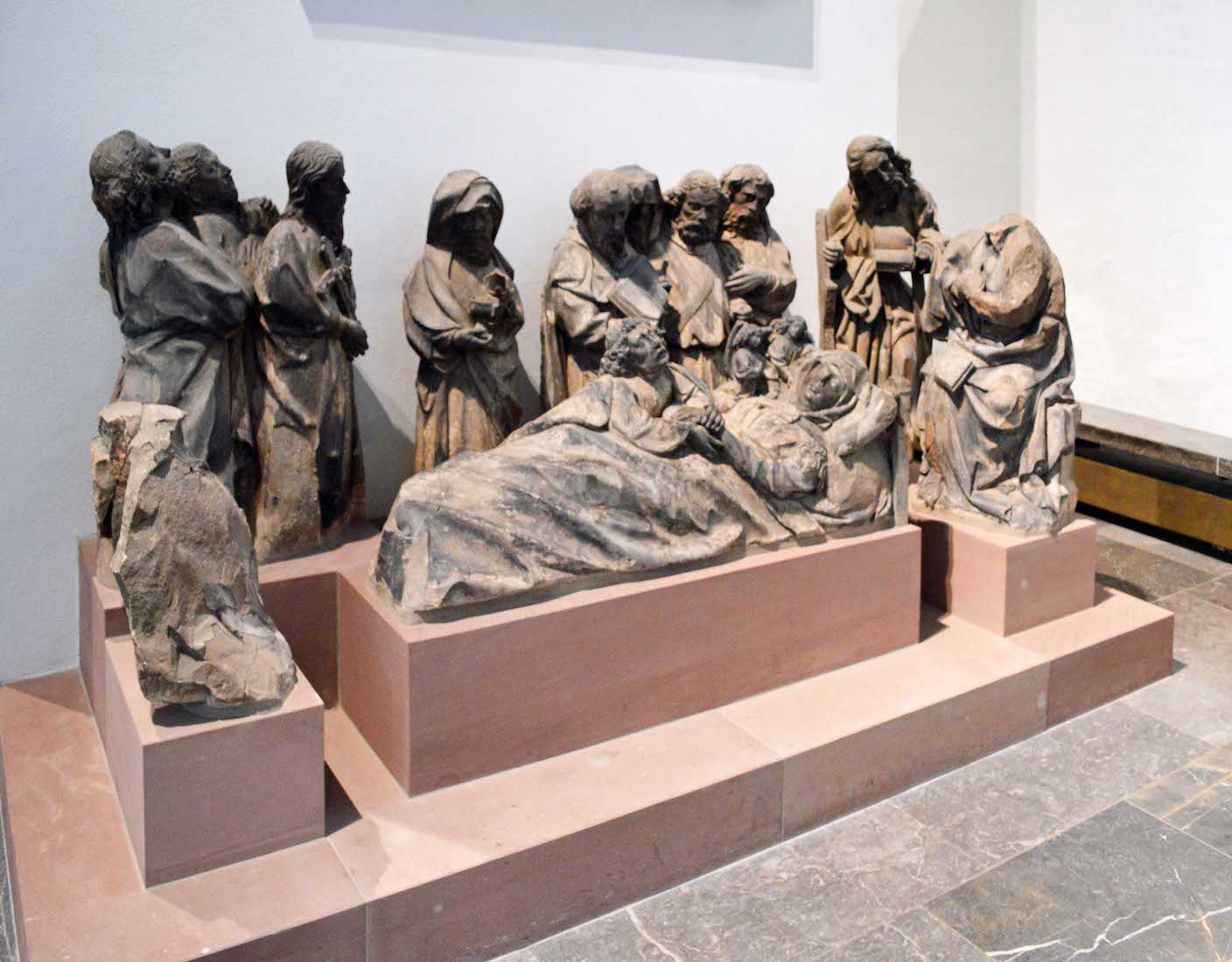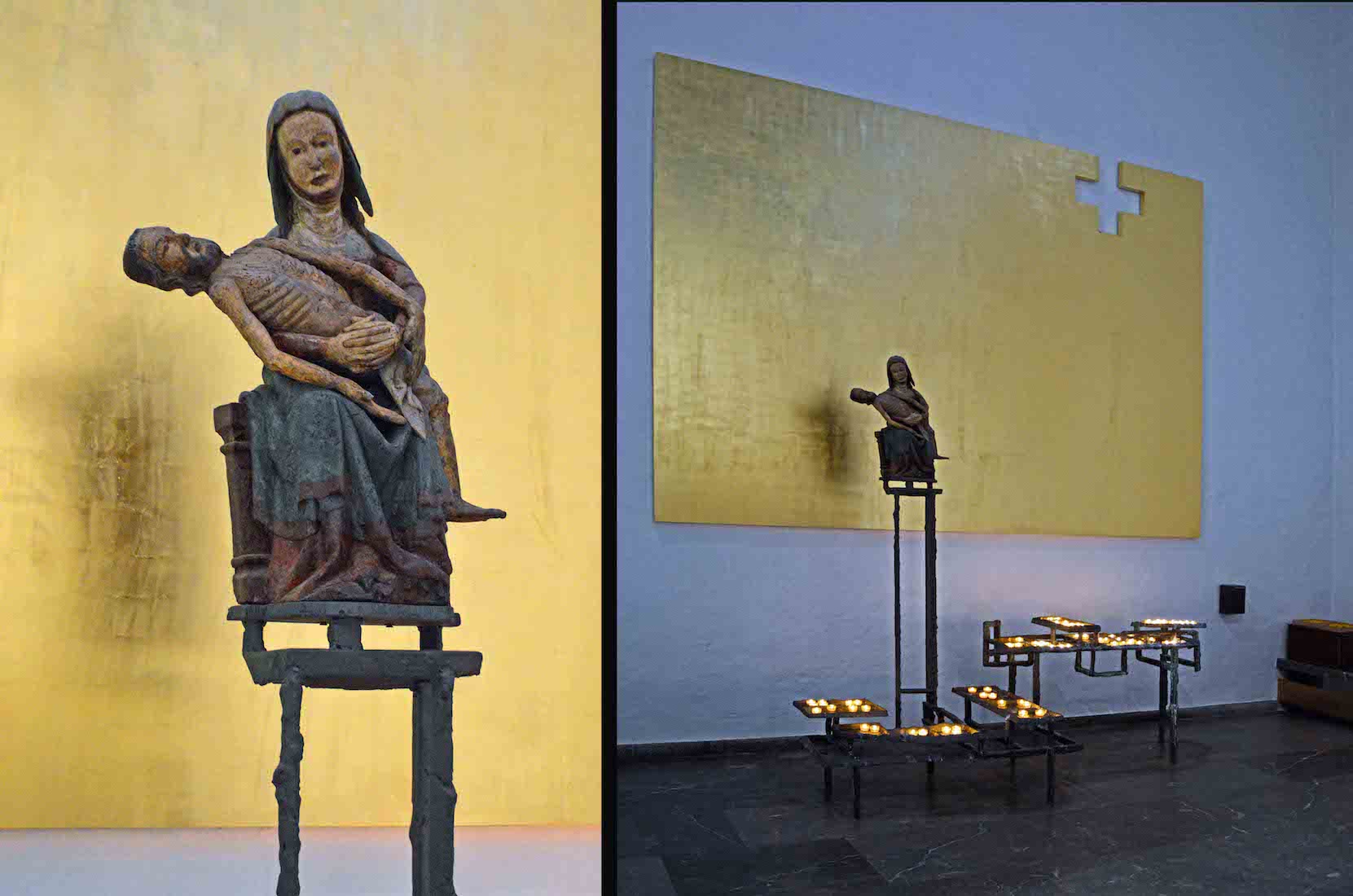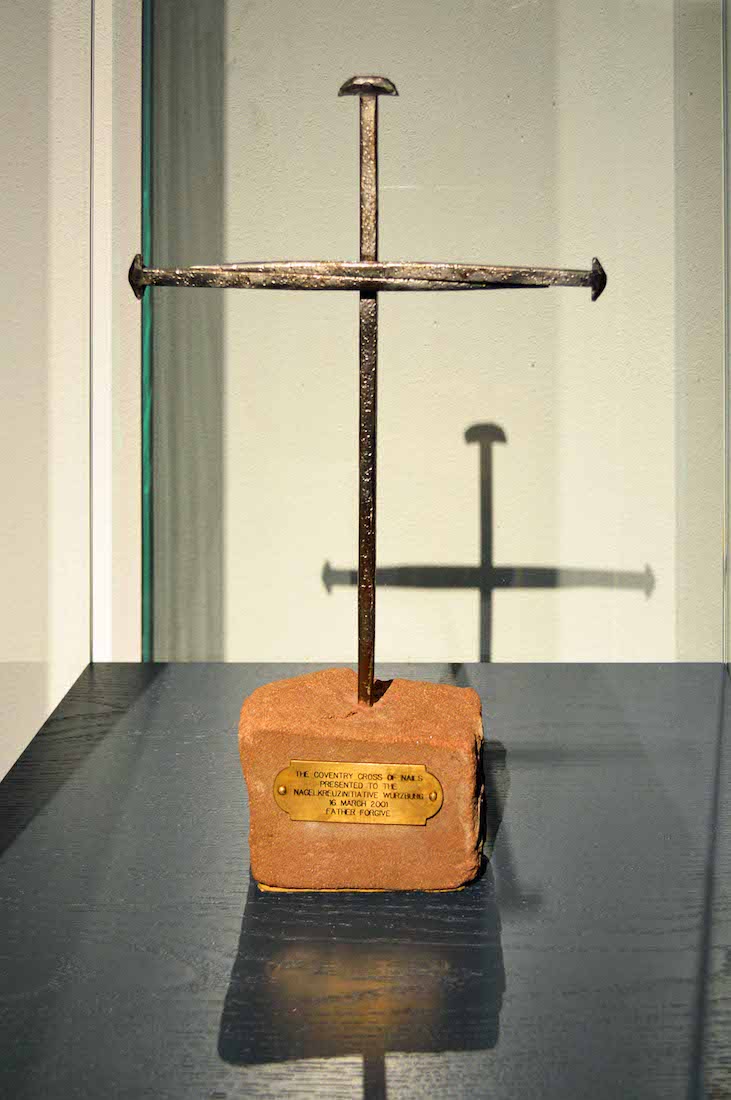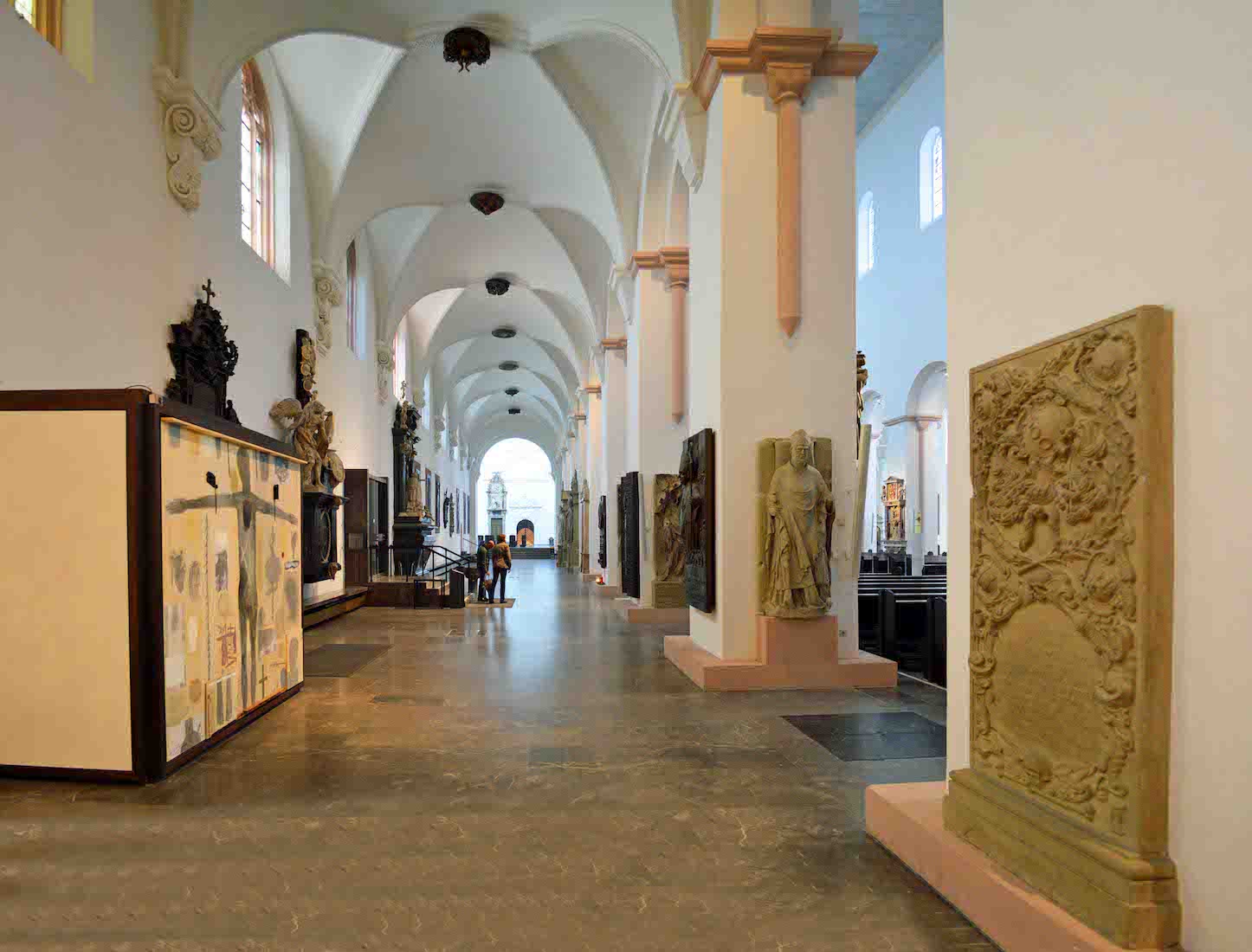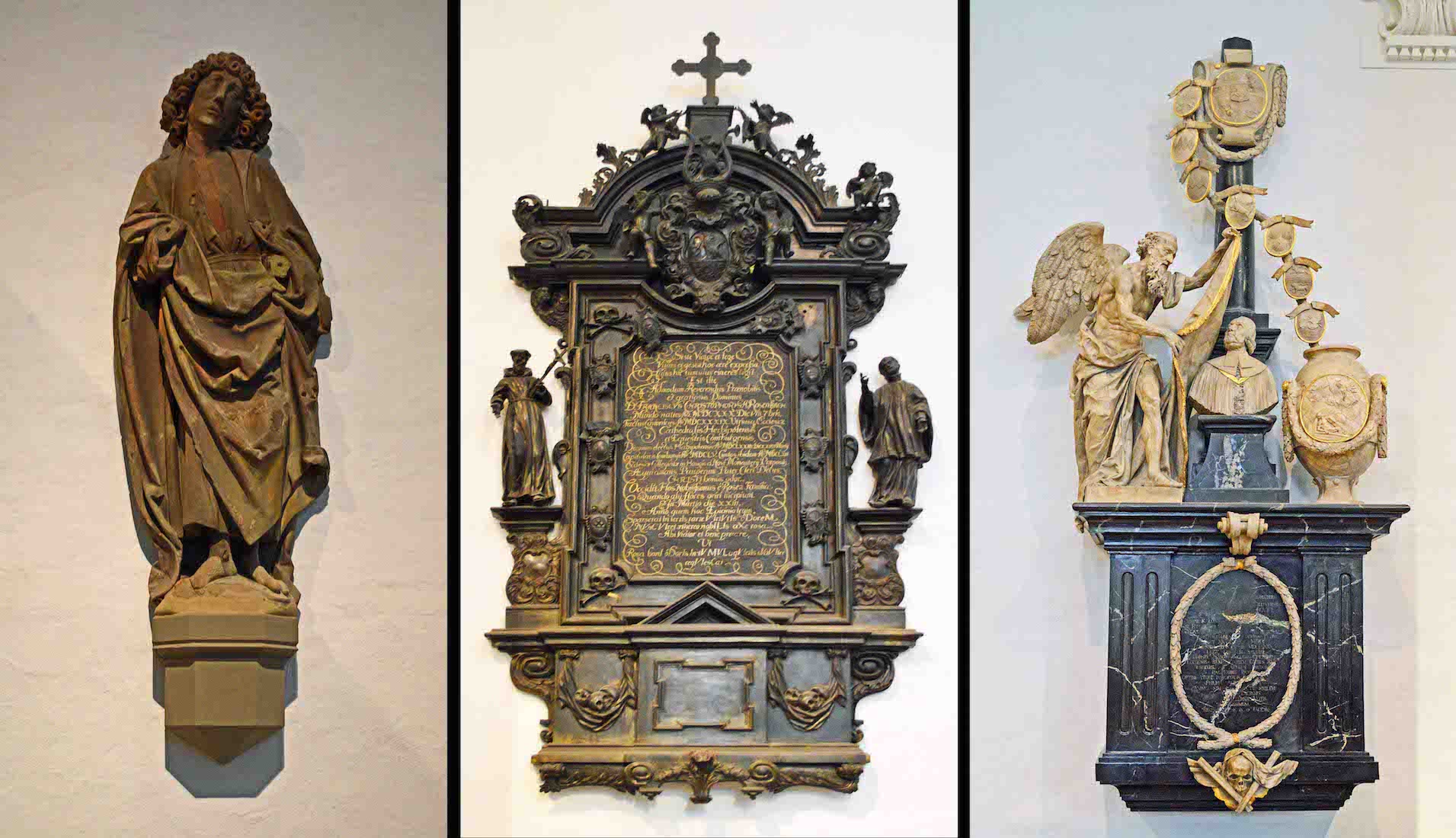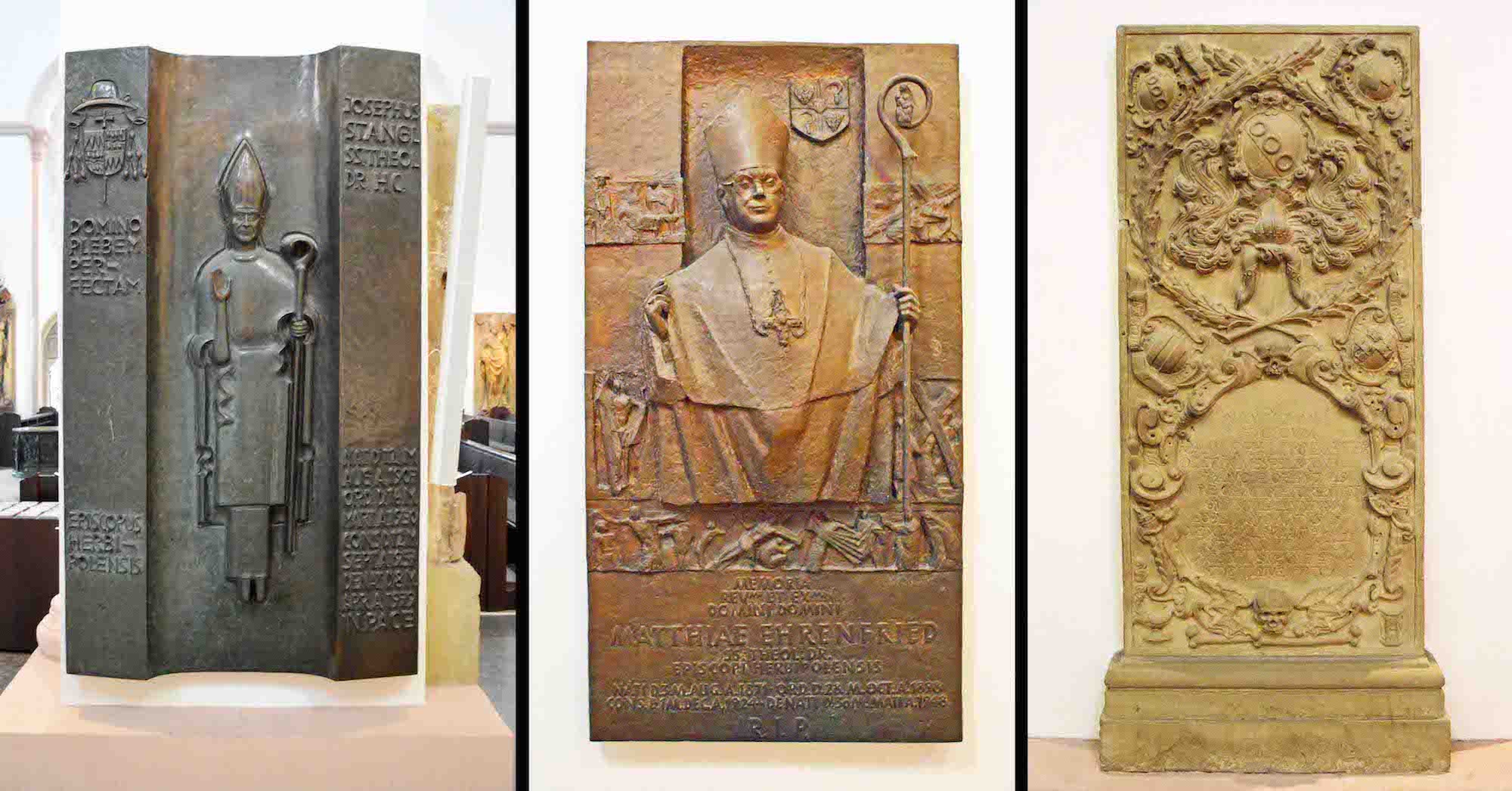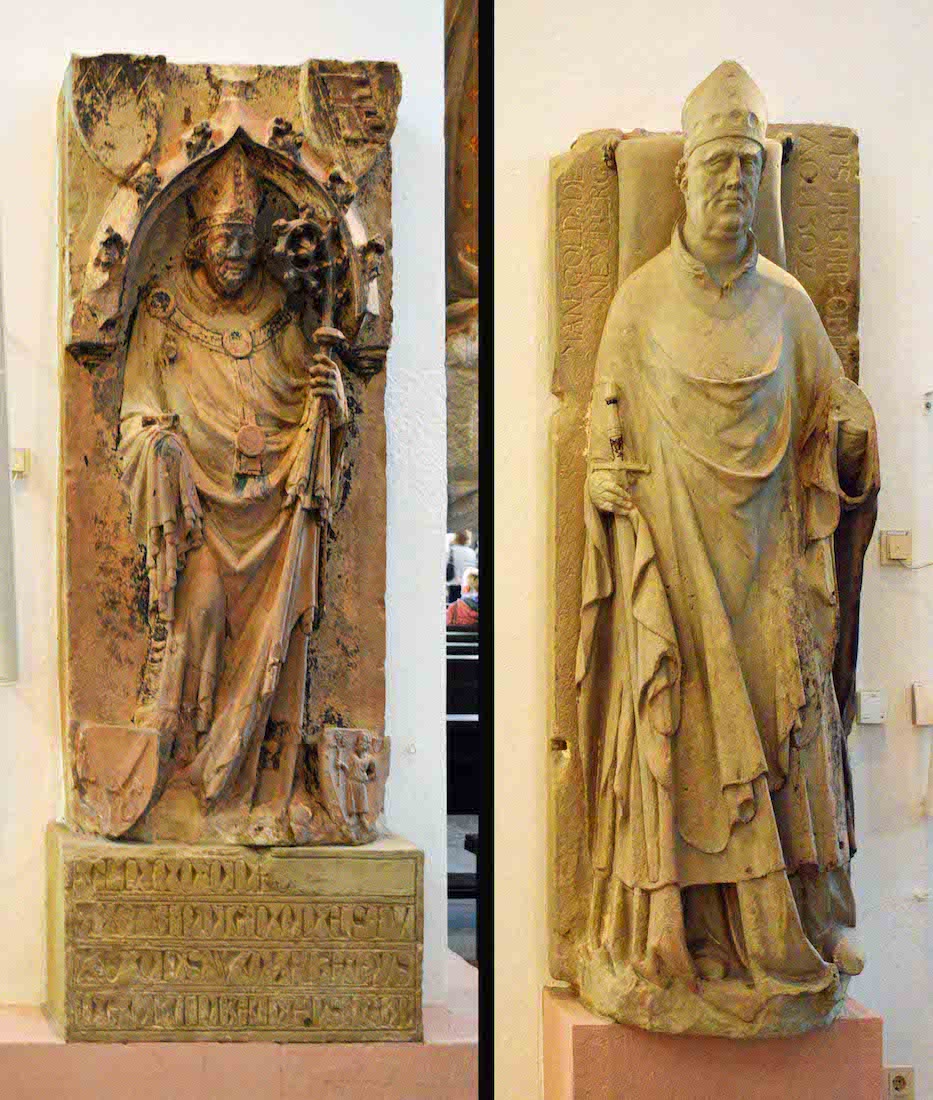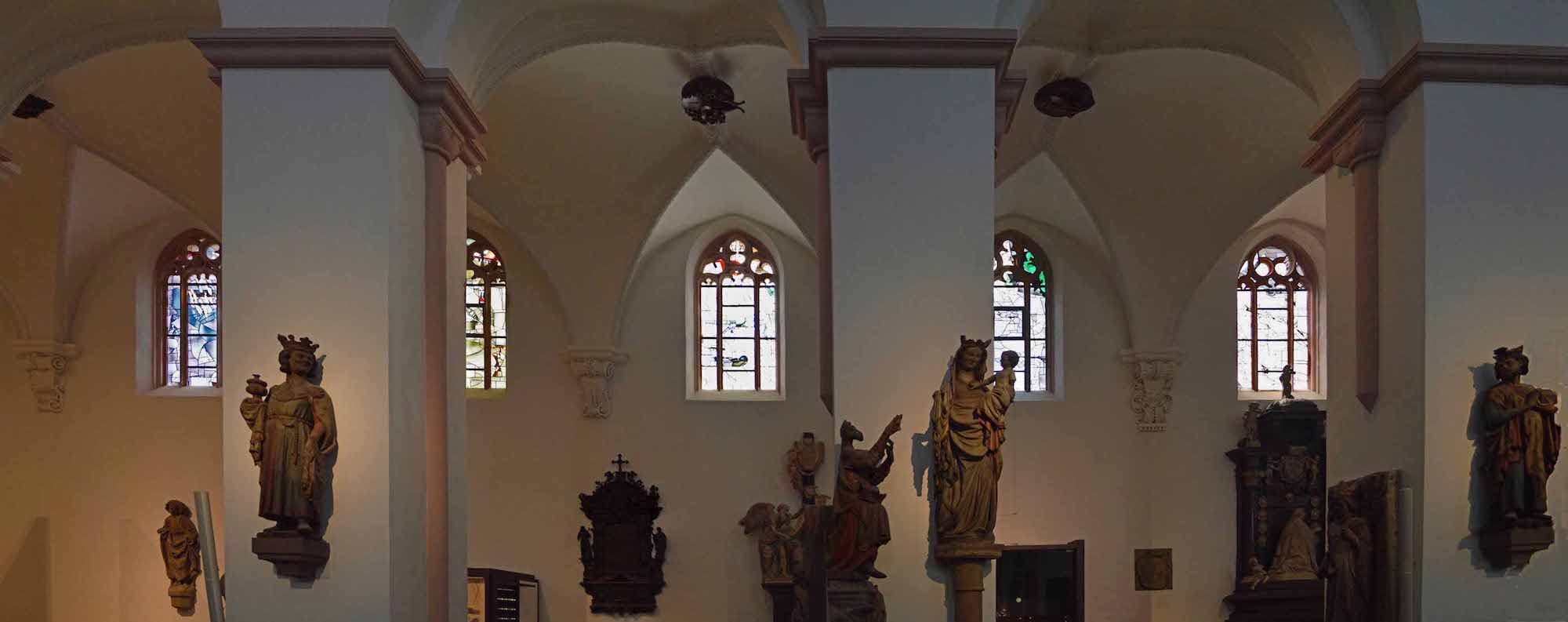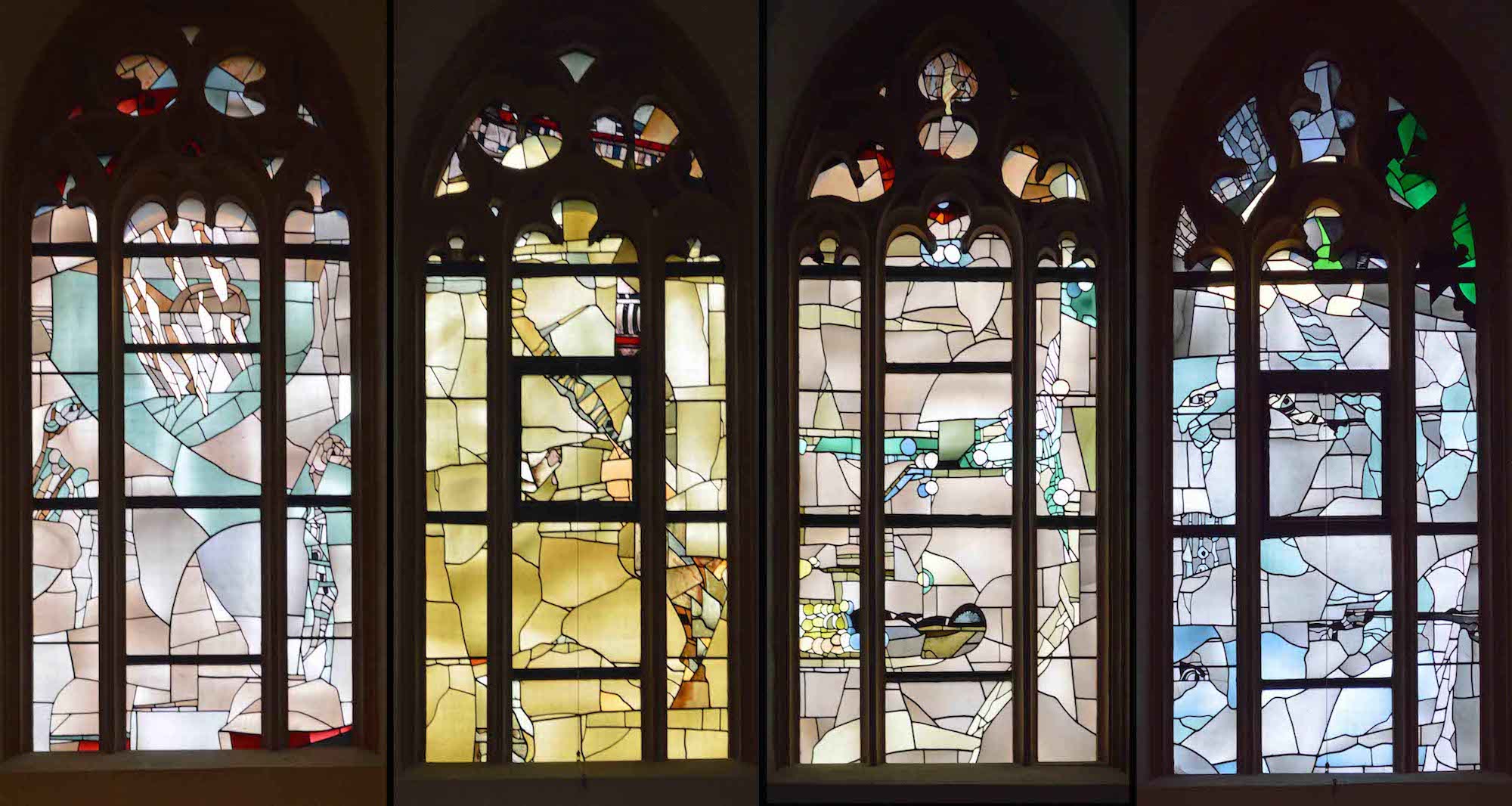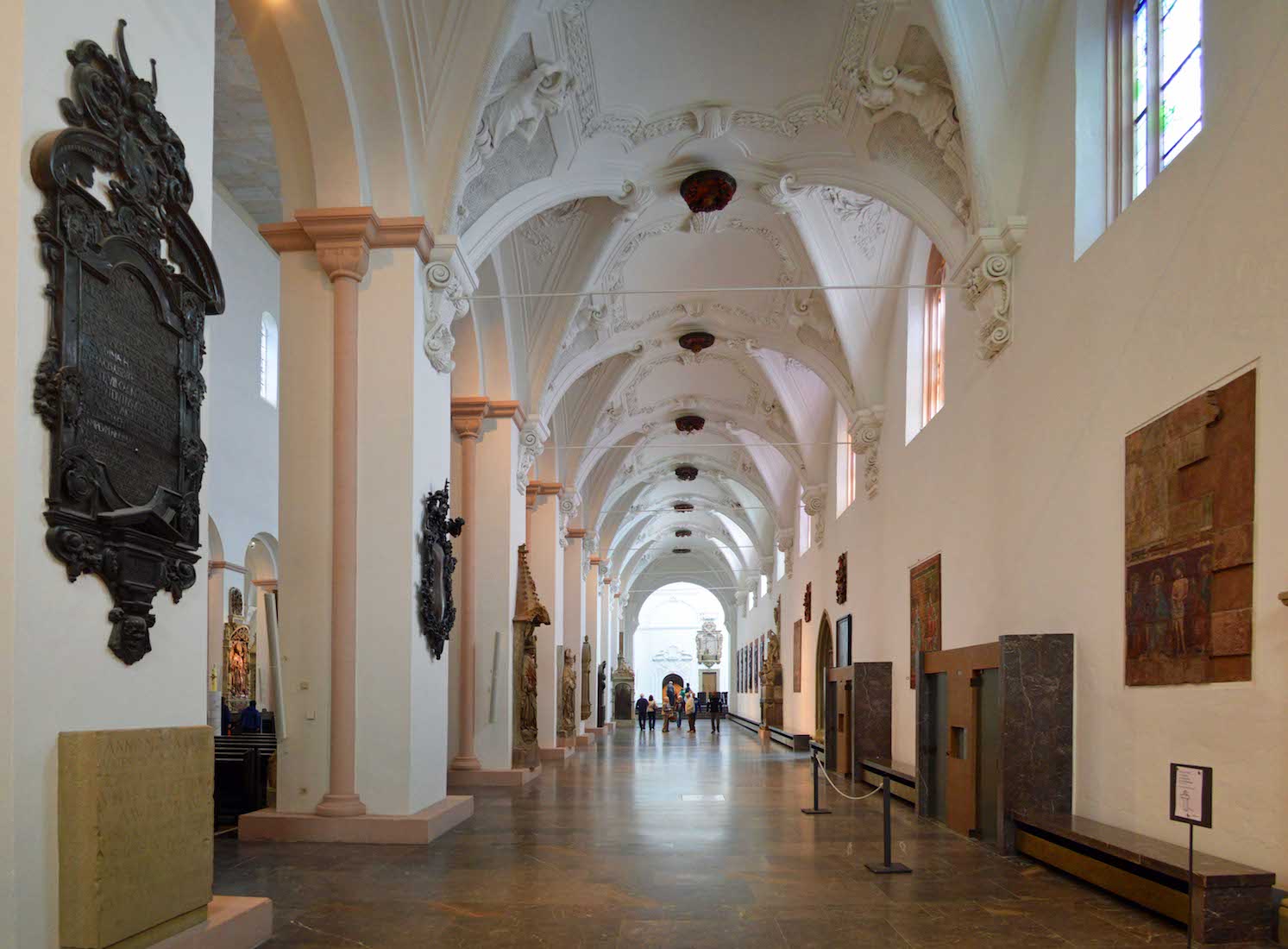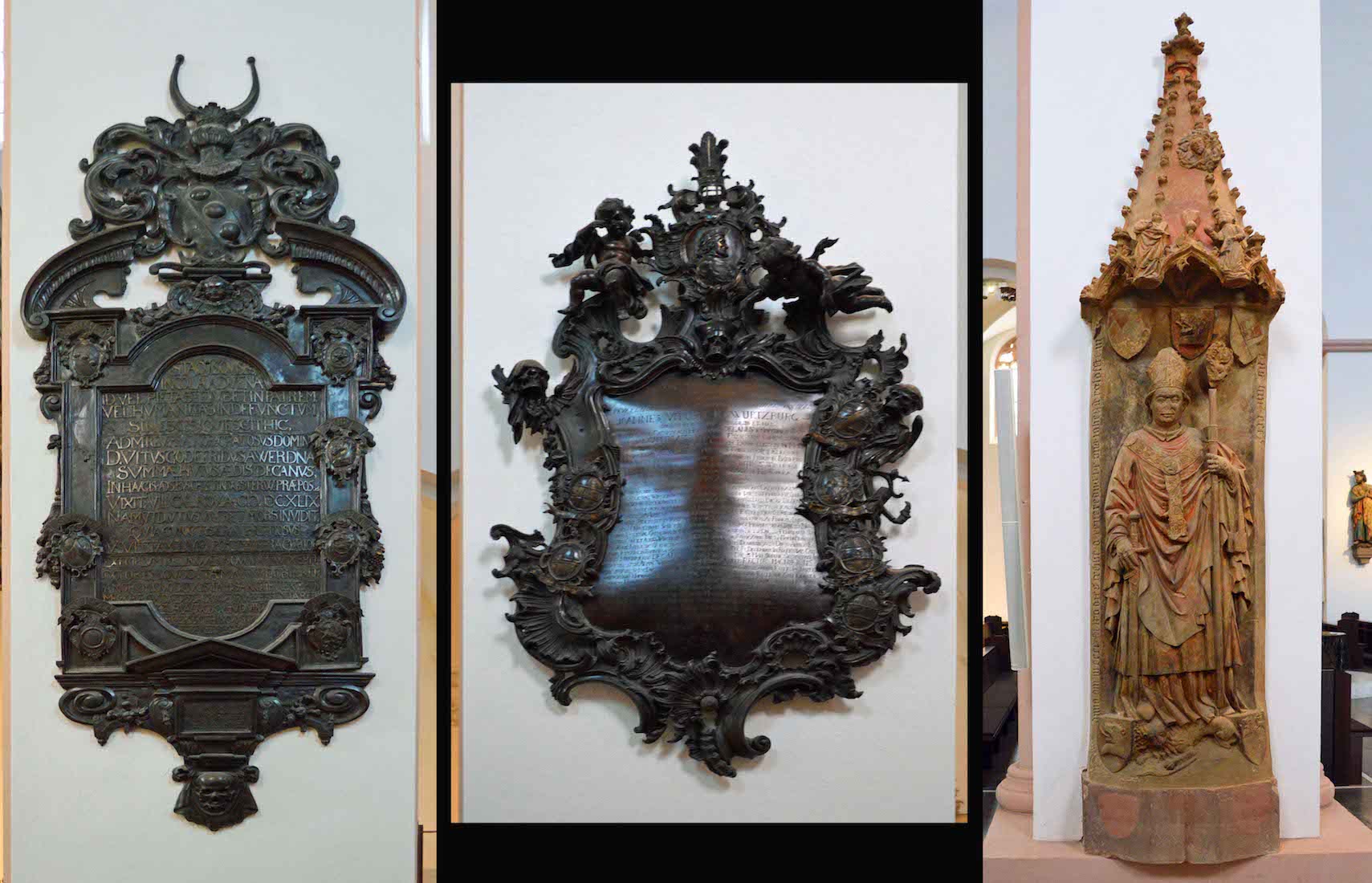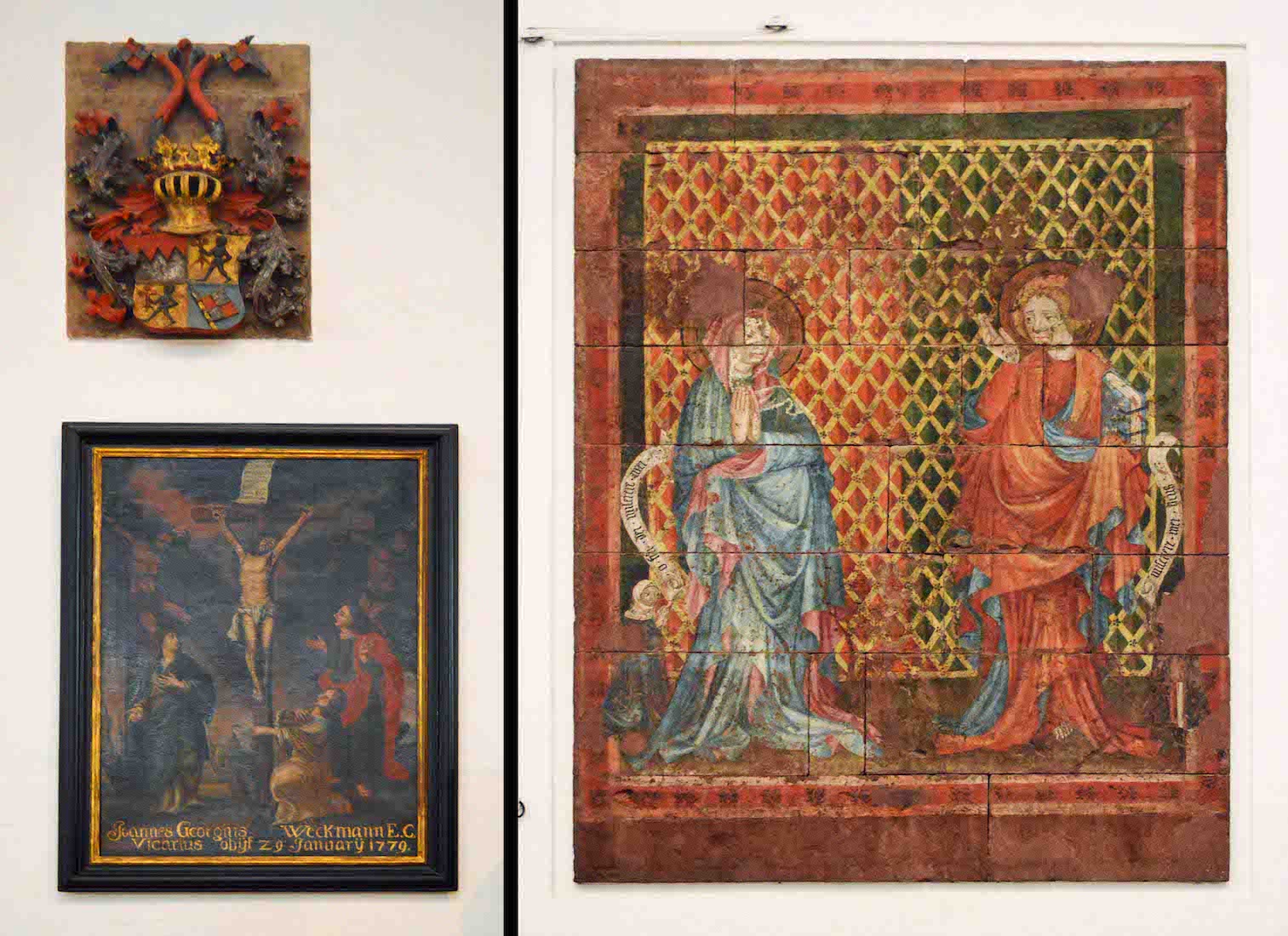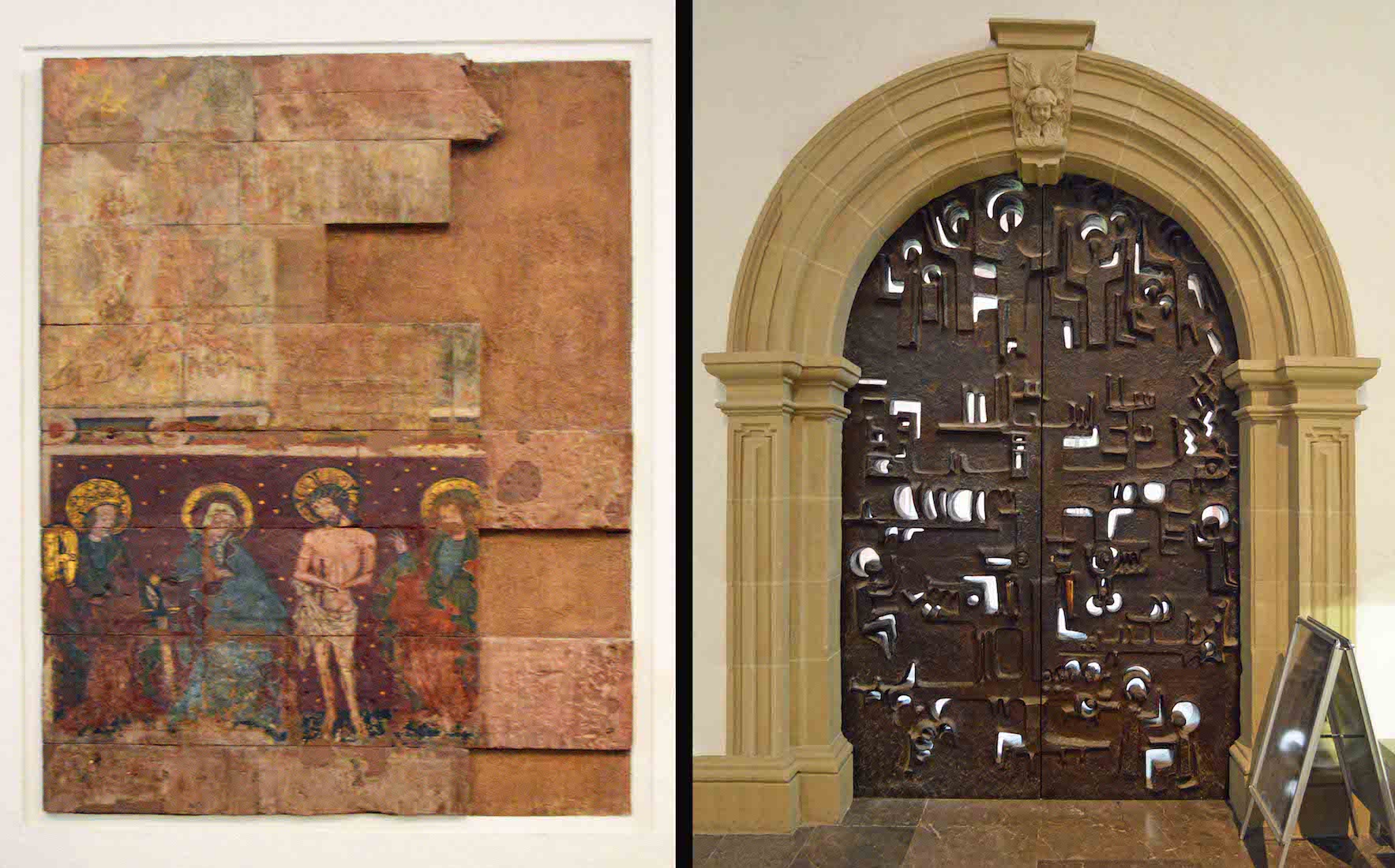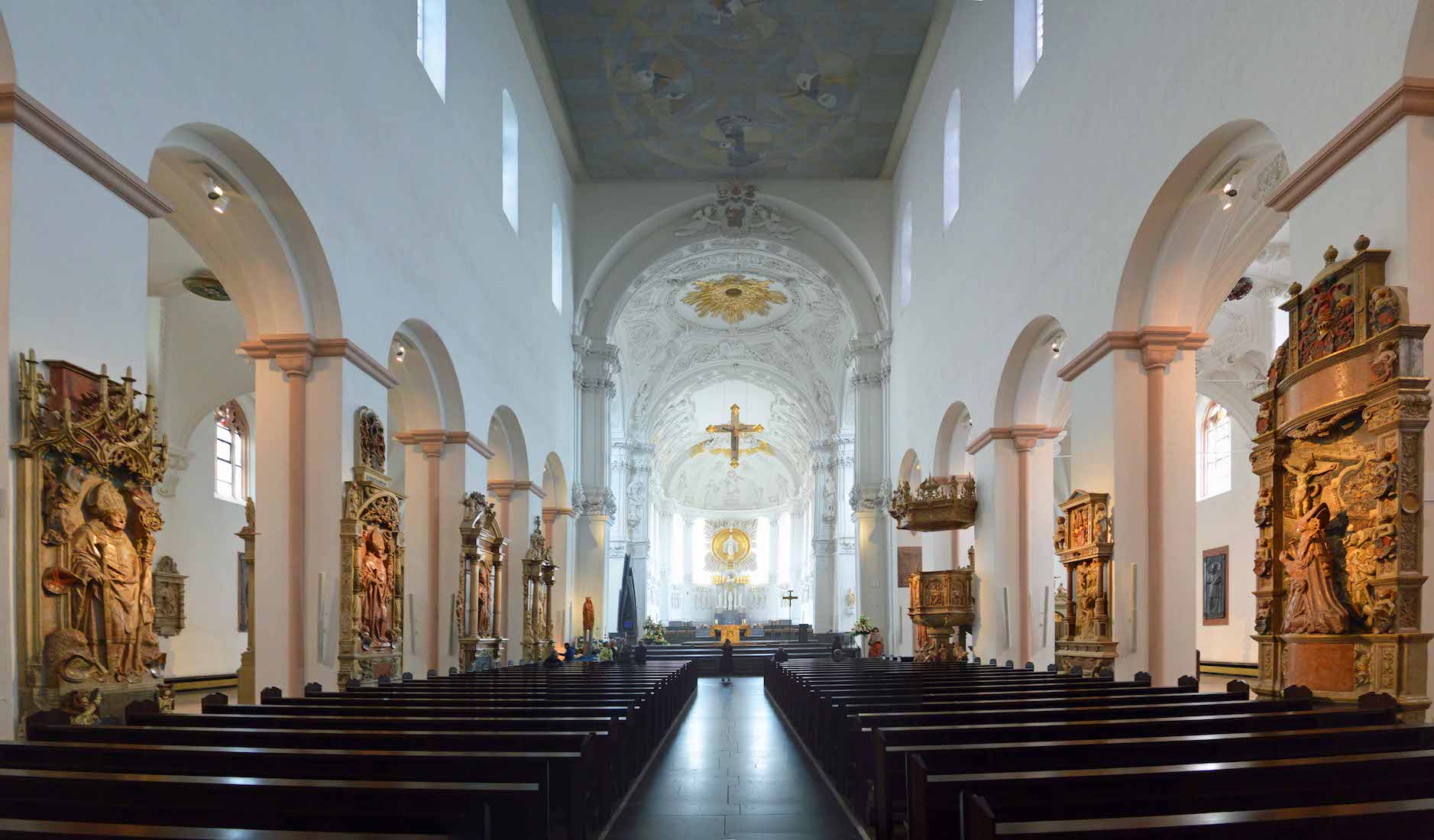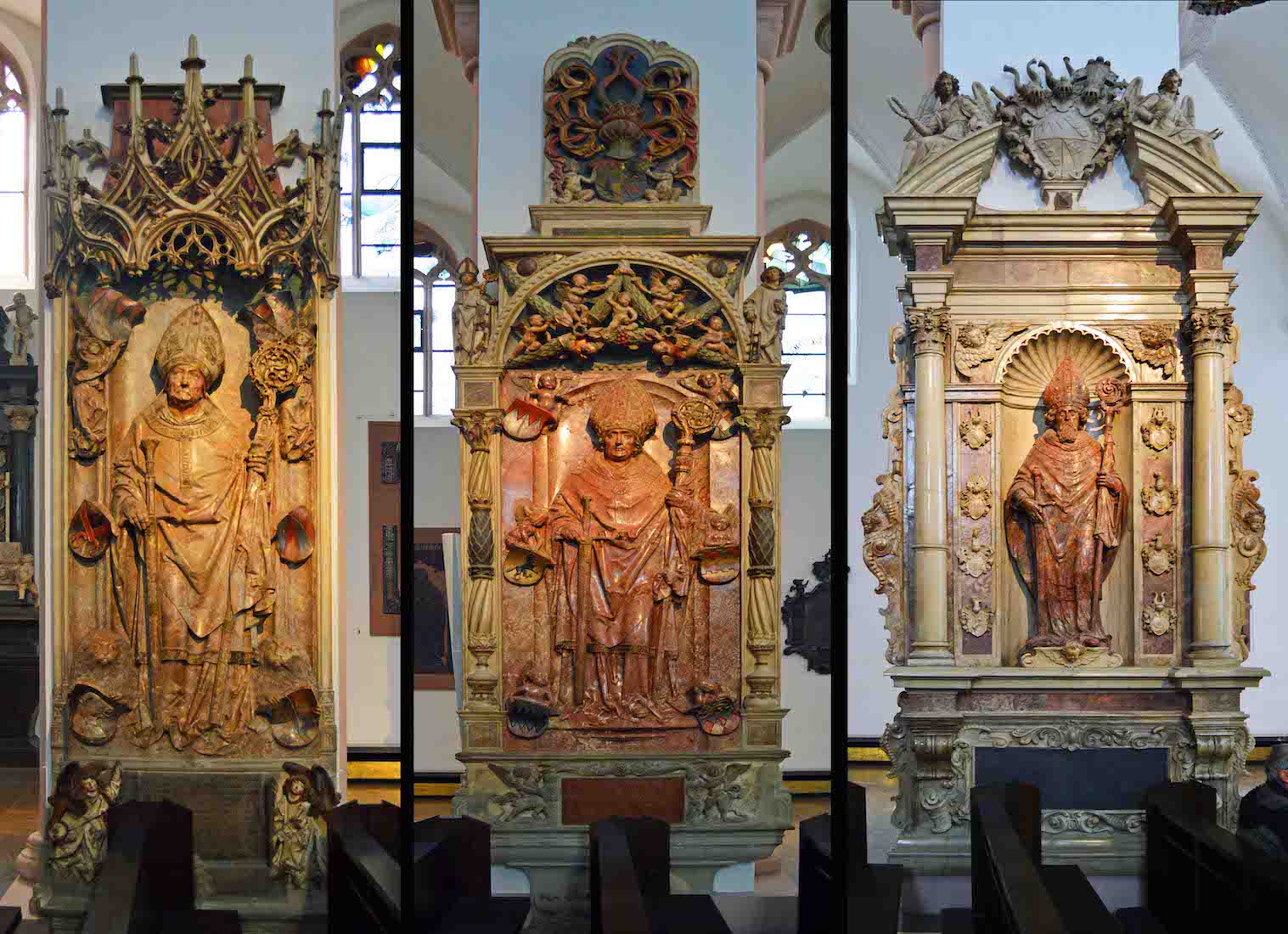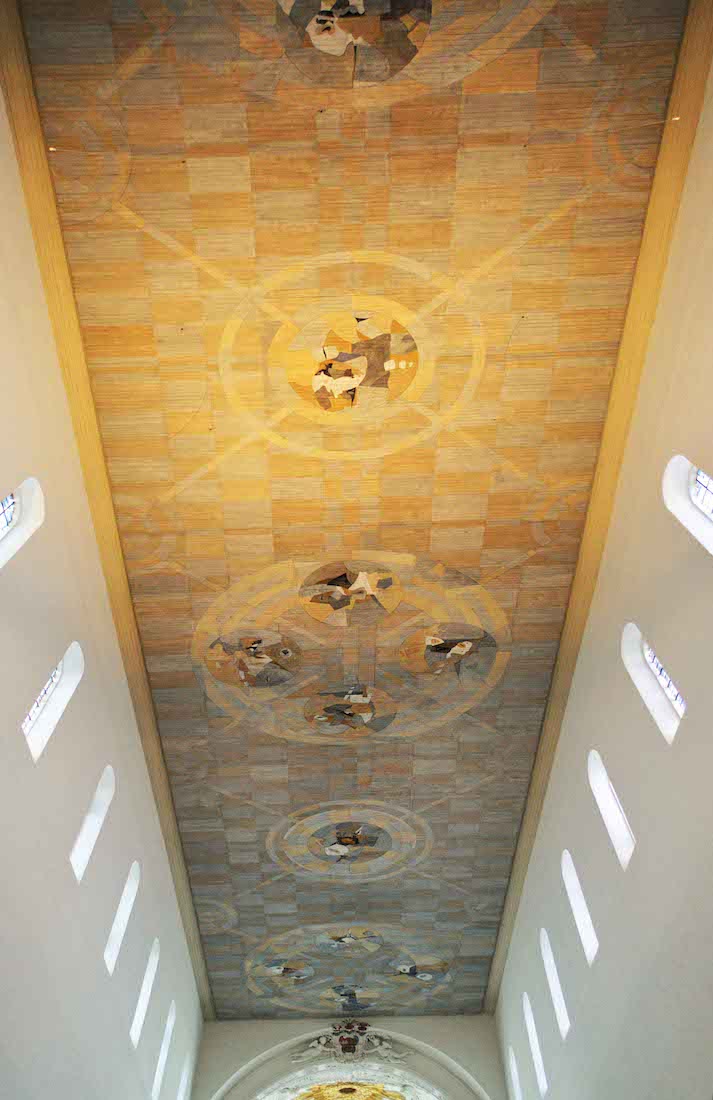
The flat ceiling extends across the central aisle of the three-aisled nave. It is adorned by a cosmological scene by Fritz Nagel (1965-66) featuring motifs of circles, crosses and the number four. PLAN
42. CENTRE WEST MAGI
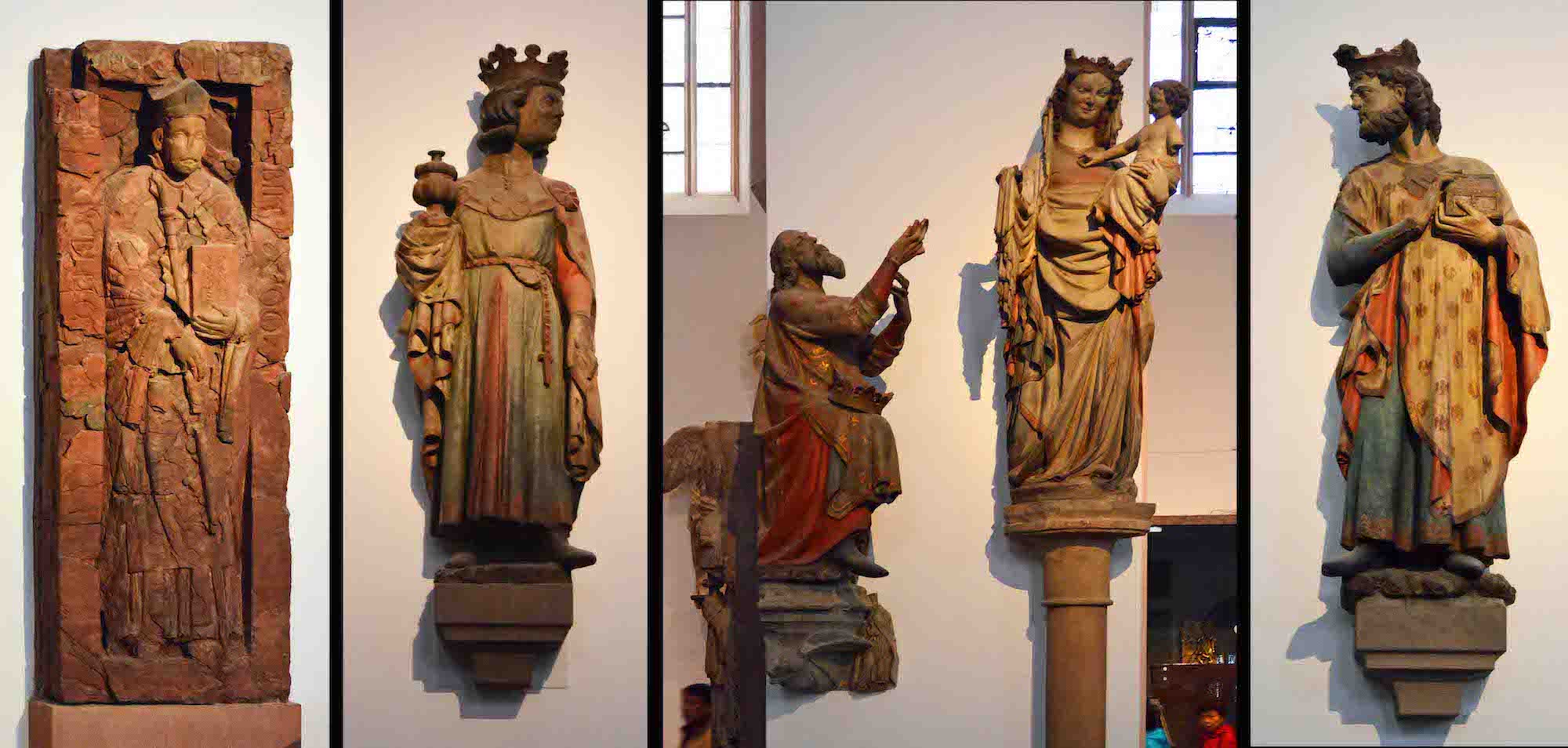
In investigating the many statues and memorials of the nave, we divide the nave into six sections: West, East (2 x 3) Centre, North, South. On the North side of the Centre West nave we find the monument for Bishop Gottfried von Spitzenberg [4] († 1190), and the Adoration of the Magi group [8] on three columns.
43. BAPTISMAL FONT
In the centre of the nave stands the baptismal font [3], cast in 1279 by Meister Eckard from Worms at the behest of the Cathedral priest Walther. It features many scenes from the Bible.
44. CENTRE WEST BISHOPS
On the South side are monuments of three Bishops (from left to right): Johann von Brunn [16] († 1440), Otto von Wolfskeel [15] († 1345), and Gottfried von Hohenlahe [14](† 1322). The stone at right is the first time in Würzburg that the ‘rationale’ is shown: a liturgical shoulder vestment of the bishops.
45. PAINTING
From the central nave we now move across to the West end of the North nave. Here we find an elaborate carving beneath an untitled painting by Marco Tirelli.
46. THE DEATH OF THE VIRGIN
The sculpture is the Death of the Virgin (c 1440) [41], a sculptural group displaying the influence of the Middle Rhine region, and perhaps the work of a sculptor from Frankfurt am Main.
47. GRIEVING MOTHER
The Western bay of the North nave is separated by a wall pane, making it a place for personal devotion. The sculpture is of a grieving mother with her dead son (c 1410), recalling the many who died and were brought here after the air raid on Würzburg on March 16, 1945.
48. CROSS OF NAILS
Also in this Western bay is this ‘Coventry Cross of Nails, presented to the Nagelkreuzinitiative Würzburg, 16 March 2001. Father Forgive.’ The Coventry Cross of Nails is recognised around the world as a symbol of peace and reconciliation. Formed with three medieval nails from the destroyed St Michael’s Cathedral, it embodies its ministry of hope and friendship with Germany in the years after 1945.
49. NORTH AISLE WEST
In this view down the North aisle we observe the row of stained glass windows at left, and the various stone monuments – on the left wall, and on the sides and fronts of the columns at right. There is also a painting [43] by Mimmo Paladino on the cabinet at left. A sculpture of St John is out of view on our left.
50. NORTH WALL MONUMENTS
From left we have: the sculpture of St John [42] from Riemenschneider’s Apostle cycle for the Chapel of St Mary in the town square, a bronz epitaph for the Cathedral dean Franz Christoph von Rosenbach [44] († 1687), and a tombstone for the Cathedral provost Johann Philipp Ludwig Ignaz von Frankenstein [45] († 1780).
51. TWO BISHOPS AND A SAD END
From the left, memorials to Bishop Josef Stangl [54] († 1979), and Cardinal Julius Döpfner [53]. The memorial at right to Johann Philipp Echter von Mespelbrunn [52] (†1665) has the family crest upside down, as the death of this 18-year-old brought the family line to an end.
52. TWO BISHOPS
In this section of the North aisle, two of the columns have monuments on their West faces. These are (from left) Bishops Wolfram von Grumbach [6] († 1333), and Mangold von Nuremberg [5] († 1303). Up to 1803, the Bishop was also a Duke: hence the sword.
53. NORTH WINDOWS
An overview of the North wall of the nave shows a matching set of stained glass windows.
54. NORTH WINDOWS: DETAIL
The windows were designed by Franz Nagel (1966-67). I have no information as to the artist’s intentions wth these windows, but they speak to me of reclaiming beauty from brokenness and war.
55. SOUTH AISLE LOOKING EAST
We continue by crossing to the Western end of the South aisle. Notice the ceiling decorations and central bosses, and the confessionals on the wall at right. We look first at the monuments on the columns at left.
56. BISHOPS’ MEMORIALS
At left is a bronze epitaph for the Cathedral dean Vitus Gottfried von Wernau [26] († 1649). At centre is another bronze epitaph, this made for Cathedral dean Johann Vitus von Würzburg [27] († 1756) signed by A. Schneider, a talented but unidentified metal caster. At right is the damaged gravestone of medieval Bishop Johann von Egloffstein [28] († 1411).
57. WALL PAINTINGS
On the South wall here we find the coat of arms of Bishop Lorenz von Bibra. The Crucifixion painting is an epitaph for Vicar Johann Georg Weckmann [37] († 1779). The wall painting at right [36] shows an unknown husband and wife – the donors of the image – kneeling in the bottom corners with the Virgin Mary and St John the Apostle (c 1400).
58. PAINTING AND PORTAL
These wall paintings were discovered and relocated during renovations. The painting at left [36] shows Christ as the Man of Sorrows with St Catherine, St Barbara and St John (c 1380). The portal leads through to the Cloisters.
59. CENTRAL NAVE EAST
We return to the central nave aisle, East of the font. There are some impressive monuments here, as well as the pulpit, far right. As usual, we begin with the four monuments at left.
60. BISHOPS’ MEMORIALS
The image on the first column (not shown here) is the Magi figure we saw before. Here we have from left tomb memorials for bishops: Rudolf von Scherenberg [9] († 1495], Lorenz von Bibra [10] († 1519). and Julius Echters von Mespelbrunn [11] († 1617).


